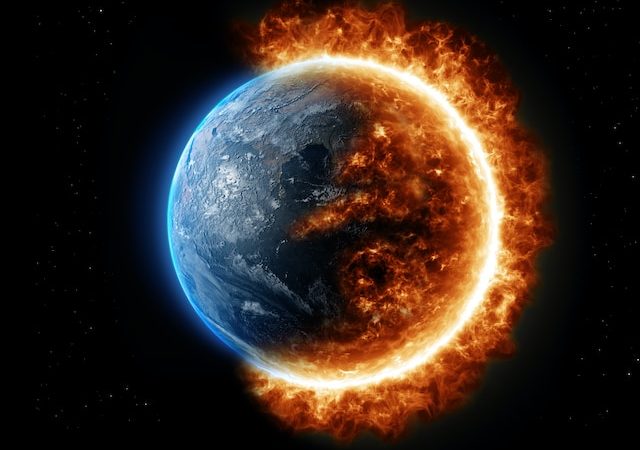Introduction: In a sobering warning, the United Nations (U.N.) released a report that paints a grim picture of our planet’s future if urgent climate action is not taken. The report reveals alarming projections, indicating that global warming is likely to surpass a critical threshold with catastrophic consequences. As the world grapples with the ongoing
Introduction:
In a sobering warning, the United Nations (U.N.) released a report that paints a grim picture of our planet’s future if urgent climate action is not taken. The report reveals alarming projections, indicating that global warming is likely to surpass a critical threshold with catastrophic consequences. As the world grapples with the ongoing climate crisis, this report serves as a clarion call for immediate and concerted action to mitigate the worst impacts of climate change.
1. The U.N. Report’s Findings:
The U.N. report, compiled by leading scientists and experts in the field, presents a comprehensive assessment of the current state of the climate. It predicts that without significant emissions reductions, the global average temperature is on track to exceed the critical threshold of 2 degrees Celsius above pre-industrial levels, and potentially even reach 3 degrees or higher.
2. Escalating Impacts of Global Warming:
The report highlights the escalating impacts of global warming that have already been witnessed around the world. From heatwaves and wildfires to severe storms and rising sea levels, the evidence of climate change’s effects on our planet is undeniable. If global warming surpasses the projected threshold, these impacts will intensify, leading to increased human suffering, economic losses, and irreversible damage to ecosystems.
3. Environmental Disruptions:
One of the most concerning aspects of global warming is its potential to disrupt vital ecosystems. Rising temperatures can trigger the collapse of coral reefs, which are vital habitats for marine biodiversity. Additionally, changing weather patterns can disrupt agricultural systems, leading to food shortages and instability in regions heavily reliant on farming.
4. Humanitarian Crisis and Displacement:
As the consequences of climate change worsen, vulnerable communities will bear the brunt of its impacts. More frequent and severe extreme weather events, such as hurricanes and floods, can result in mass displacement, exacerbating existing humanitarian crises. The report underscores the urgent need for coordinated efforts to protect and support those most affected by climate change.
5. Global Collaboration for Climate Action:
The U.N. report emphasizes the importance of global collaboration in tackling the climate crisis. It calls upon governments, businesses, and individuals to take immediate action to reduce greenhouse gas emissions, transition to renewable energy sources, and implement sustainable practices. The report also highlights the need for increased financial support to assist developing countries in their climate adaptation and mitigation efforts.
6. The Role of Individuals and Communities:
While governments and international agreements play a crucial role in addressing climate change, individual actions and grassroots initiatives are equally vital. Citizens can contribute by adopting sustainable lifestyles, supporting renewable energy projects, and holding policymakers accountable for climate-related decisions. The report emphasizes that collective action, from the individual to the global level, is essential to combat the climate crisis effectively.
7. The Economic Case for Climate Action:
Contrary to the misconception that climate action hampers economic growth, the report stresses the economic benefits of transitioning to a low-carbon economy. Investing in renewable energy, sustainable infrastructure, and green technologies can create new job opportunities, stimulate innovation, and drive economic development while simultaneously reducing greenhouse gas emissions.
Conclusion:
The U.N. report’s dire warning serves as a wake-up call to humanity. The urgency of the climate crisis demands immediate and decisive action to reduce emissions, mitigate the impacts of global warming, and adapt to a rapidly changing world. Whether it is through international cooperation, governmental policies, or individual choices, the time to act is now. We have the power to shape the future and ensure a sustainable and livable planet for generations to come. The question remains: Will we rise to the challenge and protect our world, or will we let this critical moment slip through our fingers? The choice is ours to
make.

















Leave a Comment
Your email address will not be published. Required fields are marked with *